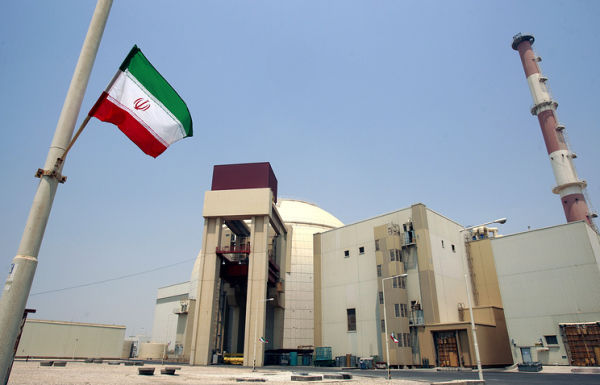Moscow. June 5th. INTERFAX - Russian Deputy Foreign Minister Sergei Ryabkov and Iranian Ambassador to Russia Kazem Jalali during a meeting on Thursday expressed interest in preventing an escalation of tensions over the Iranian nuclear program, noting the deliberately harmful nature of any anti-Iranian initiatives promoted at the IAEA, the Russian Foreign Ministry said.
"A detailed exchange of views took place on the situation around the Iranian nuclear program, including in the light of the session of the IAEA Board of Governors opening in Vienna on June 9, as well as taking into account the dynamics of indirect contacts between representatives of Iran and the United States," the Russian Foreign Ministry said in a statement posted on its website.
Smolenskaya Square stressed that "mutual interest was expressed in preventing an escalation of tension fueled by all kinds of speculations about imaginary threats related to the Iranian peaceful atom."
"The deliberately counterproductive and harmful nature of any anti-Iranian initiatives promoted by politically biased states at the IAEA site was noted in order to interfere with Tehran's constructive interaction with the Agency and the continuation of its dialogue with Washington," the report says.
The diplomats, the Foreign Ministry added, "emphasized the importance of continuing negotiating efforts aimed at eliminating unfounded suspicions and prejudices regarding Tehran's nuclear activities." "The imperative here is to rely on international law and due consideration of the legitimate interests of Iran," the message says.
Since April 12, five rounds of indirect talks between Iran and the United States have been held, mediated by Oman. Sources of the Axios portal reported that the sixth round could take place in the Middle East next weekend.
Earlier it became known that the parties are discussing, among other things, the idea of creating a regional consortium for uranium enrichment. It is assumed that the consortium will produce nuclear fuel for peaceful purposes for Iran and its neighbors under the supervision of the IAEA. Tehran insists that this concern be located exclusively on the territory of the country.
On Wednesday, Iran's Supreme leader Ali Khamenei said that the conditions imposed by the United States to resolve the problem of Tehran's nuclear program are contrary to Iranian interests.
"The first word of the United States is: Iran should not have a nuclear industry, and it should depend on the United States (...) Our response to the absurdities of the United States is clear: they will be absolutely unable to do anything about this issue," Khamenei said in a televised address.
The day before, the Presidents of the Russian Federation and the United States, Vladimir Putin and Donald Trump, had a telephone conversation. During it, the leaders also discussed Iran.
"We discussed Iran and the fact that time is running out for Iran to make a decision on nuclear weapons. The decision must be made quickly! I told President Putin that Iran cannot possess nuclear weapons, and I believe that we agree on this," Trump wrote on the Truth Social network.
So, Trump said that his Russian counterpart expressed his willingness to participate in discussions on the Iranian nuclear issue.
Russian presidential aide Yuri Ushakov told reporters on Wednesday that Trump, in a conversation with Putin, said he would appreciate Russia's assistance in negotiations with Iran on the nuclear program.

